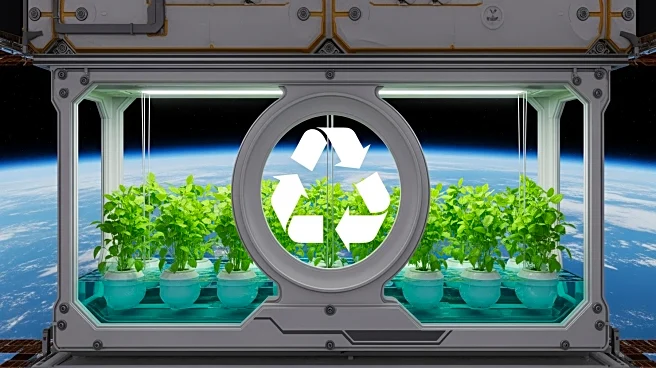What's Happening?
The European Space Agency (ESA) is set to test a novel food production method aboard the International Space Station (ISS) that utilizes urine as a key ingredient. This initiative, part of the HOBI-WAN project, aims to develop sustainable food sources
for long-duration space missions, such as those to the Moon and Mars. The process involves converting urea from urine into protein using microbes, air, and electricity. This innovative approach is designed to enhance the autonomy and resilience of human spaceflight by reducing reliance on Earth-supplied food.
Why It's Important?
The development of urine-based food production is crucial for the future of space exploration, as it addresses the logistical challenges of supplying food for long-duration missions. By creating sustainable food sources in space, agencies like ESA and NASA can reduce costs and increase the feasibility of missions to distant planets. This technology not only supports the well-being of astronauts but also represents a significant advancement in space sustainability, potentially paving the way for more ambitious exploration projects.
What's Next?
The ESA plans to conduct initial tests of the pee-cycling technology on Earth before implementing it aboard the ISS. If successful, this method could become a staple in space nutrition, supporting future missions to Mars and beyond. The project will focus on refining the technology to ensure it functions effectively in microgravity, with the ultimate goal of integrating it into regular space operations.














